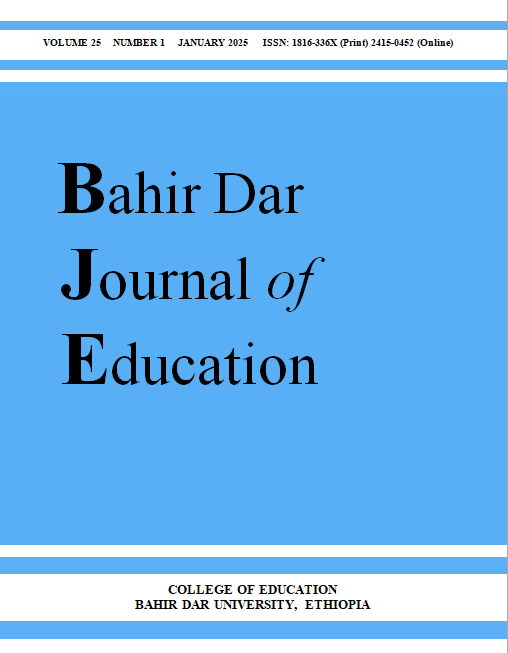The role of girls’ clubs in challenging gender norms in Ethiopian primary education
DOI:
https://doi.org/10.4314/10.4314/bdje.v25i1.2Keywords:
Gender norms, GEQIP-E, Girls’ Clubs, girls’ education, EthiopiaAbstract
One of the key priorities of ongoing nationwide education reforms in Ethiopia is the promotion of girls’ education through the establishment of Girls’ Clubs. These Clubs aim to support girls’ education by addressing restrictive socio-cultural practices and improving the accessibility and safety of schools. This paper explores the role of Girls’ Clubs in challenging gender norms that influence girls’ education in primary schools in Ethiopia. The paper draws on data from interviews with Girls’ Club focal teachers and focus group discussions with student members across four regions. Findings reveal that while Girls’ Clubs have made some progress in challenging restrictive gender norms, their impact is limited by financial, institutional, and structural constraints. Overcoming these constraints requires a collaborative approach involving school leadership, communities, and external governmental and funding organisations. We recommend that future national education reforms prioritise increased financial support for Girls’ Clubs and integrate their initiatives into broader community-level strategies.

